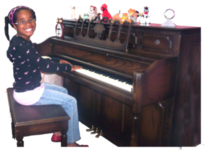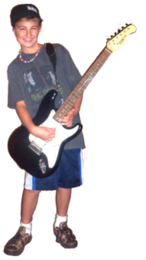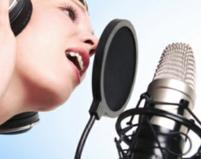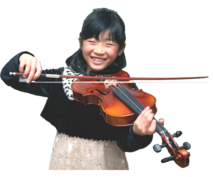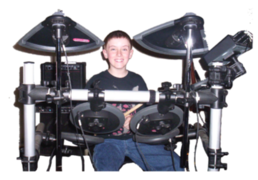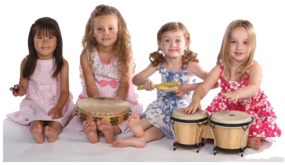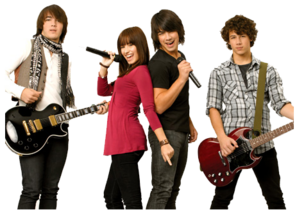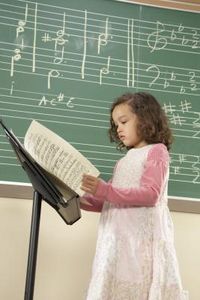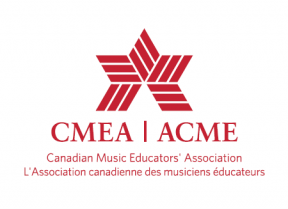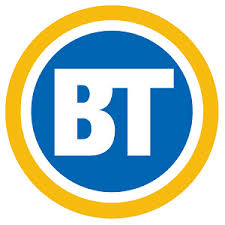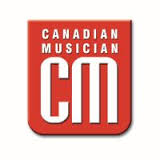Etobicoke 's Best Music School for Piano & Keyboard Lessons, Voice/Singing/Public Speaking Lessons, Guitar Lessons, Bass Lessons, Drum Lessons, Violin and Fiddle, Viola, Cello, Flute, Piccolo, Mandolin, Banjo, Ukulele Lessons, Theory Lessons, Preschool Program, Rock Band S'Cool, Glee Club, Saxophone, Clarinet Lessons
Call to Inquire: 416-614-7529 Toll Free: 1-844-A-Sharp-1
A Sharp School of Music
The Royal York Plaza
1500 Royal York Road
Etobicoke, Ontario M9P 3B6
Tel: 416-614-PLAY (7529) or
416-614-SING (7464)
Toll Free: 1-844-274-2771
~ Here are some interesting facts about music: ~
Fact:
A University of California (Irvine) study showed that after eight months of keyboard lessons, preschoolers showed a 46% boost in their spatial reasoning IQ. - Rauscher, Shaw, Levine, Ky and Wright, "Music and Spatial Task Performance: A Causal Relationship," University of California, Irvine, 1994.
In another university study, children who took music lessons for only six months scored a whopping 34% higher in abstract-reasoning skills than a second group that studied the computer. Problem solving skills improve because learning music integrates sequencing, memorization, patterning and, especially, creative thinking.
Fact:
Music majors are the most likely group of college grads to be admitted to medical school. Physician and biologist Lewis Thomas studied the undergraduate majors of medical school applicants. He found that 66 percent of music majors who applied to med school were admitted, the highest percentage of any group. For comparison, 44 percent of biochemistry majors were admitted. Also, a study of 7,500 university students revealed that music majors scored the highest reading scores among all majors including English, biology, chemistry and math.
Fact:
Musical ability increases one's confidence and overall sense of self worth:
Secondary students who participate in music programs report the lowest lifetime and current use of all substances, such as alcohol, tobacco, and drugs. - Texas Commission on Drug and Alcohol Abuse Report. Reported in Houston Chronicle, January 1998, cited by The National Association for Music Education, http://www.menc.org/information/advocate/facts.html
Fact:
Studies have shown that kids who study music perform higher on standardized tests, have a higher than average rate of admittance to college, and are more likely to go on to higher education. Learning to play an instrument will directly affect a child's reading comprehension, math, and logic skills. The United States Department of Education stated that "Many colleges view participation in the arts and music as a valuable experience that broadens students' understanding and appreciation of the world around them. It is also well known and widely recognized that the arts contribute significantly to children's intellectual development." - Getting Ready for College Early: A Handbook for Parents of Students in the Middle and Junior High School Years, U.S. Department of Education, 1997
Fact:
The very best engineers and technical designers in the Silicon Valley industry are, nearly without exception, practicing musicians. - Grant Venerable, "The Paradox of the Silicon Savior," as reported in "The Case for Sequential Music Education in the Core Curriculum of the Public Schools," The Center for the Arts in the Basic Curriculum, New York, 1989
Fact:
Music making makes the elderly healthier. There were significant decreases in anxiety, depression, and loneliness following keyboard lessons. These are factors that are critical in coping with stress, stimulating the immune system, and in improved health. Results also show significant increases in human growth hormones following the same group keyboard lessons. (Human growth hormone is implicated in aches and pains.) - Dr. Frederick Tims, reported in AMC Music News, June 2, 1999.
Fact:
A grade eight RCM certificate qualifies one to become a teacher, a grade 7 certificate is worth one arts credit in high school grade 11, and a grade 8 certificate is worth one arts credit for grade 12.
Music Lessons
Practice Tip of the Week; June 30, 2025: Do plan a specific time to practice each day. Students who practice at the same time each day usually make better progress than those who wait several days before a practice session. Music practice easily becomes a low priority item placed at the end of a busy day of school, homework and extracurricular activities. The student is then too tired to concentrate. When practice time becomes a structured routine, it can be perceived as a relaxation or fun time to be looked forward to.
A Sharp" School of Music, Etobicoke, Toronto
We offer private or small group music lessons in:
Piano, Keyboard, Voice/Vocal/Singing/Public Speaking, Guitar, Bass Guitar, Mandolin, Banjo, Ukulele, Drums, Violin, Fiddle, Viola, Cello, Flute, Piccolo, Saxophone, Trumpet, Clarinet, Theory, Rock Band School, Glee Club and a Pre-School Program for children aged 3 to 5
There are no registration fees
We are entirely exempt from sales tax -:)
Call now to book a free introductory lesson: 416-614-PLAY (7529) or 416-614-SING (7464)
~ Established 1998 ~
 | ||||||
 | ||||||
Music Lessons
for all ages
Complimentary Wi-Fi :-)
Twice yearly A Sharp Recitals are complimentary!
Our Next Recital: Sunday December 7, 2025
~ Your Gold and Platinum Winner of the Guardian Reader's Choice Awards ~
Yes, we are OPEN all summer :-)
Call Now for a Free Introductory Lesson(s)!
416-614-7529
Brand New Beginners Welcome :-)
Our Mission:
To bring the joy of music into the lives of people of all ages within a relaxed and secure environment.
*Yes! We offer
Online Lessons
Please Note:
We are OPEN Monday June 30
CLOSED Tuesday July 1st for
Canada Day



